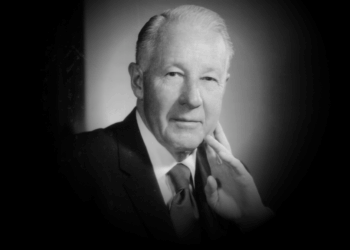One big test for President Donald Trump’s plan to end the war in Gaza – other than Hamas accepting it – will be if young people in the Middle East like it. About a third of the region’s people are 15 to 34 years old, and they have become so eager for peace and prosperity that many Arab and Muslim leaders eagerly signed up to back the plan.
Yet, according to one poll, this youth bulge also does not like politicized religious movements – like Hamas. The 20-point plan addresses this sentiment.
After achieving its initial steps to stabilize Gaza, the plan calls for a program in which Palestinians would be “deradicalized.” Gaza must become a “terror-free zone,” the plan states. And it lays out one way to do this: an interfaith dialogue to change “mindsets and narratives in Israel and Gaza.”
Details on such a dialogue were not given. Yet that may not be necessary. A proposed administrator for Gaza, former British Prime Minister Tony Blair, is an expert at promoting interfaith understanding. Even more, a few Muslim countries are now leaders in bringing major religions together to end conflicts.
In mid-September, for example, Malaysia hosted an interfaith conference for “peace and harmony in a turbulent world.” About the same time, Kazakhstan hosted a “congress” – its eighth since 2003 – with more than 100 representatives of Christianity, Islam, Judaism, Buddhism, and other faiths. Pope Leo XIV sent a message to participants that working together in harmony “is not merely a pragmatic choice, but a reflection of the deeper order of reality.” (In 2023, the U.S. State Department issued a report on the use of interfaith dialogue in Burkina Faso to enhance national cohesion and reduce the threat of terrorism.)
At the crossroads of many religions in Central Asia, Kazakhstan has taken up “spiritual diplomacy” to counter a rise in religious extremism. During this latest congress, Kazakh political scientist Marat Shibutov noted the promise and perils of such gatherings:
“It used to be hard enough just to get imams and rabbis from the Middle East to sit at the same table,” he told The Times of Central Asia. “This time, sparks were flying throughout the congress. At the closing session, the Chief Sephardic Rabbi nearly got into a confrontation with an imam from Al-Azhar. It was tough for the organizers, but they pulled it off.”
One organizer, Maulen Ashimbayev, head of the Kazakhstan Senate, wrote in the EU Reporter of a deep need for different faiths to call for dialogue, compassion, and coexistence. “When the wars in Ukraine and Gaza finally end,” he stated, “the work of reconciliation will require not only political agreements but also moral and spiritual healing. Religious leaders will be central to that process.”












